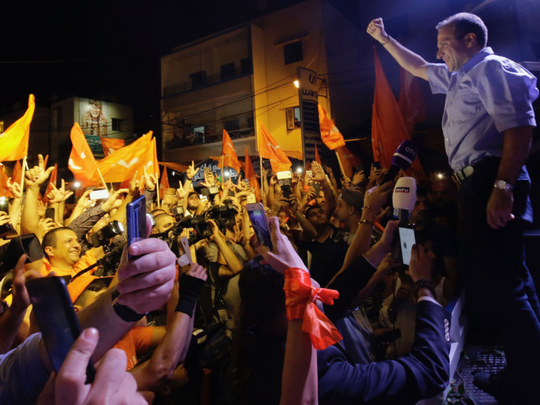
Dubai: Hezbollah and its political allies won just over half the seats in Lebanon’s parliamentary election, unofficial results showed, boosting an Iranian-backed movement fiercely opposed to Israel and underlining Tehran’s growing regional clout.
Branded a terrorist group by the United States, the heavily armed Shiite Hezbollah has grown in strength since joining the war in Syria in support of President Bashar Al Assad in 2012.
An Israeli minister said the preliminary results showed the Lebanese state was indistinguishable from Hezbollah, signalling the risk of Israel hitting Lebanon’s government in a future war.
The vote also demonstrates an increased polarisation in the country where both pro and anti-Hezbollah forces gained seats at the expense of moderates.
While Hezbollah and its allies secured more than half of the parliamentary seats, the Lebanese Forces, headed by Christian leader Samir Geagea—a staunch Hezbollah opponent—also gained seats in parliament.
Moderates, like current prime minister Sa’ad Hariri, who have worked to maintain a delicate balance between Lebanon’s various sectarian and political groups, have lost seats.
“Moderate Arabs failed at establishing a solid base to win more seats,” Hassan Abu Talib, a veteran analyst at the Cairo-based Al Ahram Strategic Studies Center told Gulf News.
Lebanese columnist Nicholas Nassif explained to Gulf News that the vote reflected changes within political groups and have less of an impact on the overall political system.
Within the Chrisitan groups, Lebanese forces have gained the most seats while within the Muslims, the Shiites have outvoted the Sunnis.
What is worrisome about the vote is that Hezbollah and its allies appear set to take at least 47 seats in the 128-seat parliament, which would enable them to veto any laws it opposes.
Hariri announced Monday that his Sunni-dominated March 14 political alliance had lost a third of its seats in parliament following the country’s first general election in nine years.
But Geagea, said the results showed there was a “popular ground” that backs March 14 and would “give us strength and a push to fix the path much more than we were able to in the past years”.
Observers believe government formation could be delayed because of increased polarisation.
Turnout stood at a lowly 49 per cent, according to official figures released after Sunday’s vote by the interior ministry.
Hariri, and other senior politicians, blamed the unexpectedly weak turnout on a new electoral law which appears to have confused voters.












